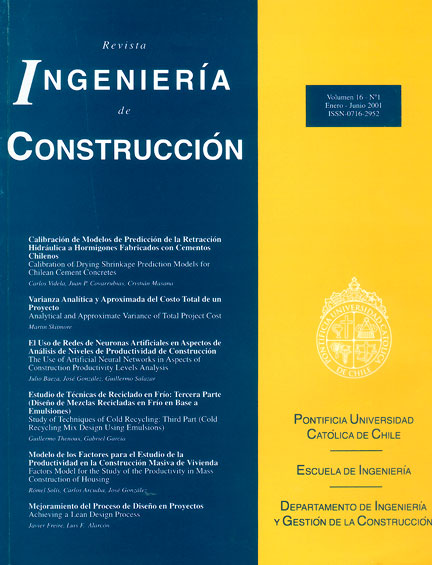ANALYTICAL AND APPROXIMATE VARIANCE OF TOTAL PROJECT COST
Keywords:
cost, components, distribution, variance, covariance, coefficient of variation, independence assumption, correlation, monte carlo simulation, professional judgementAbstract
The statistical variance of total project cost is usually estimated by means of a Monte Carlo simulation on the assumption that exact analytic approaches are too complicated. This paper tests thatassumption and shows that, contrary to expectations, the analytic solution is relatively straightforward. It is also shown that the coefficient of variation is unaffected by the size (surface area) of the project when using standardized component costs. A case study is provided in which actual component costs are analyzed to obtain the required total cost variance. The results confirm previous work in showing that the approximation of the second moment (variance) under the assumption of independence considerably underestimates the exact value. The analysis then continues to examine the effects of professional judgement and, with the simulated data used, the approximation is shown to be reasonably accurate – the professional judgement absorbing most of the intercorrelations involved. An example is also given in which the component unit quantities are priced by their average unit costs and which again shows thatthe approximation is close to the true value. Finally, this is extended to show how the exact total project cost variances may be obtained for each project.


